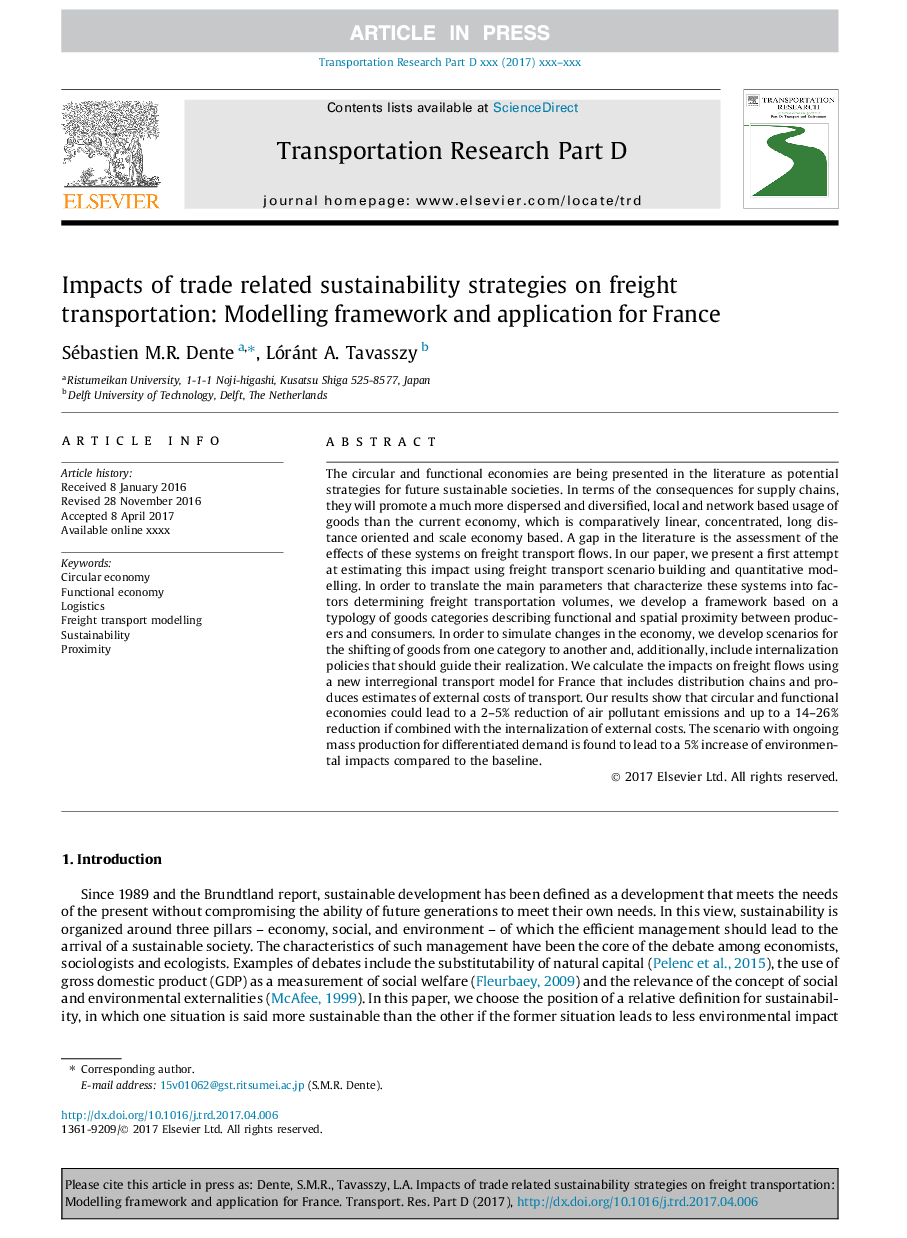| Article ID | Journal | Published Year | Pages | File Type |
|---|---|---|---|---|
| 7499236 | Transportation Research Part D: Transport and Environment | 2018 | 12 Pages |
Abstract
The circular and functional economies are being presented in the literature as potential strategies for future sustainable societies. In terms of the consequences for supply chains, they will promote a much more dispersed and diversified, local and network based usage of goods than the current economy, which is comparatively linear, concentrated, long distance oriented and scale economy based. A gap in the literature is the assessment of the effects of these systems on freight transport flows. In our paper, we present a first attempt at estimating this impact using freight transport scenario building and quantitative modelling. In order to translate the main parameters that characterize these systems into factors determining freight transportation volumes, we develop a framework based on a typology of goods categories describing functional and spatial proximity between producers and consumers. In order to simulate changes in the economy, we develop scenarios for the shifting of goods from one category to another and, additionally, include internalization policies that should guide their realization. We calculate the impacts on freight flows using a new interregional transport model for France that includes distribution chains and produces estimates of external costs of transport. Our results show that circular and functional economies could lead to a 2-5% reduction of air pollutant emissions and up to a 14-26% reduction if combined with the internalization of external costs. The scenario with ongoing mass production for differentiated demand is found to lead to a 5% increase of environmental impacts compared to the baseline.
Related Topics
Life Sciences
Environmental Science
Environmental Science (General)
Authors
Sébastien M.R. Dente, Lóránt A. Tavasszy,
